CORPORATE ACTION: Amazon
Shareholder Resolution Calls On Amazon To Reveal Online Retailer’s Contribution To Plastic Pollution
 Amazon shareholders are expected to vote on a resolution calling on the online retailer to reveal how much its packaging is contributing to plastic pollution. Activist shareholder group As You Sow co-proposed the resolution, which will require Amazon to release information by December 2021 on the volume of plastic packaging created by its business operations and the steps it has taken to deal with the issue. The company’s board of directors has called on shareholders to vote against the resolution.[Image Credit: © Amazon]
Amazon shareholders are expected to vote on a resolution calling on the online retailer to reveal how much its packaging is contributing to plastic pollution. Activist shareholder group As You Sow co-proposed the resolution, which will require Amazon to release information by December 2021 on the volume of plastic packaging created by its business operations and the steps it has taken to deal with the issue. The company’s board of directors has called on shareholders to vote against the resolution.[Image Credit: © Amazon]
CORPORATE ACTION: Clorox
Brita Partners With Parley For The Oceans To Help Ensure Safe Drinking Water In The Future
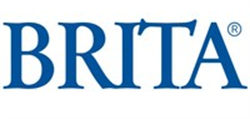 At-home water filtration company Brita joined forces with futurist environmental organization Parley for the Oceans to help eradicate single-use plastic water bottle and stop marine plastic pollution. As part of the collaboration, the partners have launched the Future of Water, a design and development project that aims to highlight what Brita products and access to safe drinking water could look like in the future. Also, the partners aim to lead the way to the future of safe drinking water.[Image Credit: © The Clorox Company]
At-home water filtration company Brita joined forces with futurist environmental organization Parley for the Oceans to help eradicate single-use plastic water bottle and stop marine plastic pollution. As part of the collaboration, the partners have launched the Future of Water, a design and development project that aims to highlight what Brita products and access to safe drinking water could look like in the future. Also, the partners aim to lead the way to the future of safe drinking water.[Image Credit: © The Clorox Company]
Clorox’s Kingsford Plant Gains Zero-Landfill-Waste Certification Against All Odds
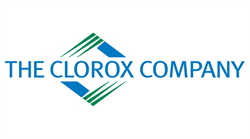 The Clorox Company’s Kingsford manufacturing plant in Parsons, West Virginia, has been certified as a production facility that produces zero landfill-bound waste. The factory gained this recognition despite the obstacles and challenges it faced, such as its small-town location and limited resources. Some of the steps taken by the factory’s sustainability team included identifying each waste stream and providing well-designed collection points for wastes across the plant.[Image Credit: © The Clorox Company]
The Clorox Company’s Kingsford manufacturing plant in Parsons, West Virginia, has been certified as a production facility that produces zero landfill-bound waste. The factory gained this recognition despite the obstacles and challenges it faced, such as its small-town location and limited resources. Some of the steps taken by the factory’s sustainability team included identifying each waste stream and providing well-designed collection points for wastes across the plant.[Image Credit: © The Clorox Company]
CORPORATE ACTION: Henkel
Henkel Adhesives Technologies Pushes Company’s Sustainability Efforts
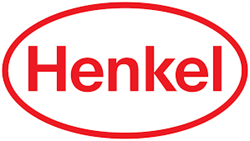 Henkel’s Adhesives Technologies business unit is leading the company’s efforts to achieve its sustainability goals, including becoming climate positive by 2040. Henkel Adhesives Technologies is working to improve the energy efficiency of the company’s manufacturing facilities worldwide. Also, Henkel has adopted strategies aimed at implementing a circular economy, including working for an International Sustainability and Carbon Certification for the company’s factory in Drogenbos, Belgium.[Image Credit: © Henkel]
Henkel’s Adhesives Technologies business unit is leading the company’s efforts to achieve its sustainability goals, including becoming climate positive by 2040. Henkel Adhesives Technologies is working to improve the energy efficiency of the company’s manufacturing facilities worldwide. Also, Henkel has adopted strategies aimed at implementing a circular economy, including working for an International Sustainability and Carbon Certification for the company’s factory in Drogenbos, Belgium.[Image Credit: © Henkel]
CORPORATE ACTION: Kao
Kao Uses PET Refine Technology’s Recycled PET For Cosmetics Bottles
CORPORATE ACTION: Reckitt Benckiser
Lysol Tweets About Its New Environment-Friendly Plastic Spray Bottle
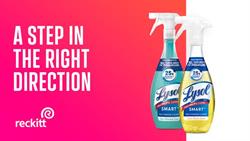
Lysol announced via Twitter the release of a new spray bottle for its liquid cleaning products. The triggered spray bottle can be refilled and reused up to 25 times, helping save 75% in plastic packaging. The company used its Sustainable Innovation Calculator in developing the bottle.[Image Credit: © RB plc]
Reckitt Adds 30% Recycled Plastic To Finish Detergent Packaging
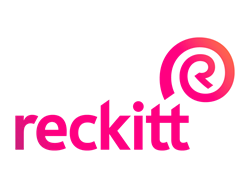
Reckitt said it has added 30% post-consumer recycled material to the recyclable pouch for its Finish brand of dishwashing detergent. This move will be implemented in June 2021 and is expected to help bring the company closer to its 2025 sustainability goals, which include adding more recycled plastic into its packaging worldwide.[Image Credit: © RB plc]
CORPORATE ACTION: Unilever
Unilever Supports NEXTLOOPP Project To Recycle Used PP Into Food-Grade Packaging
 Unilever has joined Nextek’s NEXTLOOP global project aimed at developing food-grade recycled polypropylene (rPP) from post-consumer plastic packaging waste. Polypropylene is a packaging material commonly used for food products worldwide; however, used PP packaging is not widely recycled using conventional mechanical recycling facilities. Food-grade recycled PP is usually made using advanced recycling technology processes.[Image Credit: © Nextek]
Unilever has joined Nextek’s NEXTLOOP global project aimed at developing food-grade recycled polypropylene (rPP) from post-consumer plastic packaging waste. Polypropylene is a packaging material commonly used for food products worldwide; however, used PP packaging is not widely recycled using conventional mechanical recycling facilities. Food-grade recycled PP is usually made using advanced recycling technology processes.[Image Credit: © Nextek]
P&G Begins Operating Product Supply Innovation Center In Germany
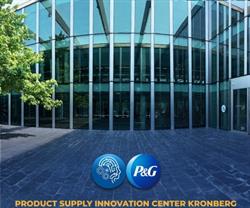
Procter & Gamble has opened its Product Supply Innovation Center, a “supply chain sustainable solutions and intelligent operations” facility in Kronberg, Germany. The company plans to use the facility as a center for working with local suppliers, technology companies, research and development organizations, and leading universities. Also, the center will play a leading role in developing solutions that are “global, scalable and modular” to eliminate carbon emission from its supply chain.[Image Credit: © P&G]
Unilever Plans To Expand In-Store Refill Trial Across UK
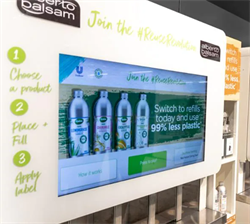
Unilever is expanding its in-store refill trial efforts in Europe. After launching a refill trial in Asda’s sustainability store in Leeds in 2020, Unilever has started offering the service in stores across the UK. Unilever’s typical refill trial involves selling pre-filled stainless-steel bottles, which consumers can return to the stores to be cleaned and refilled. Unilever is also testing on-the-go refills, with shoppers refilling reusable bottles at stand-alone stations.[Image Credit: © Unilever plc]
Unilever Introduces World’s First Paper-Based Bottle For Laundry Detergents
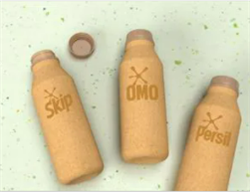
Unilever has unveiled a paper-based bottle for the company’s OMO brand of laundry detergent. The company developed the technology in collaboration with the Pulpex consortium, which also includes Diageo, Pilot Lite and other industry members. The technology involves spraying the inside of the paper bottles with a proprietary coating that fends off water. Unilever plans to use the technology to develop paper-based bottles for haircare products.[Image Credit: © Unilever plc]
CORPORATE ACTION: Other
Asda Expands Lineup Of Stores Offering Product Refill Service
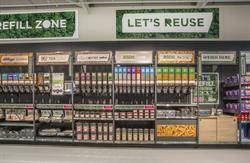 UK retailer Asda is expanding its product refill initiative designed to help customers reduce, reuse, or recycle their store packaging. The company plans to expand its list of partner household brands and add four more stores to its lineup of locations offering refill service. Other parts of the expanded initiative include a standalone refill station with nine bays at the company’s store in Milton Keynes to be launched in December 2021. Also, the company plans to launch its first refill station in Scotland at the Glasgow Toryglen store in August 2021.[Image Credit: © Asda]
UK retailer Asda is expanding its product refill initiative designed to help customers reduce, reuse, or recycle their store packaging. The company plans to expand its list of partner household brands and add four more stores to its lineup of locations offering refill service. Other parts of the expanded initiative include a standalone refill station with nine bays at the company’s store in Milton Keynes to be launched in December 2021. Also, the company plans to launch its first refill station in Scotland at the Glasgow Toryglen store in August 2021.[Image Credit: © Asda]
SC Johnson Collaborates With Industry Partners To Focus Spotlight On Ocean Plastic Pollution
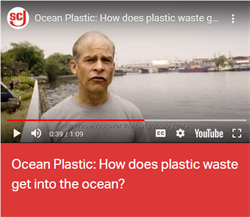
SC Johnson said it has been working to raise public awareness of ocean plastic pollution since 2018. Some of the ways the company is reducing plastic waste and improve sustainability include working with the Ellen MacArthur Foundation to advocate for a circular economy for plastic and stopping plastic waste from entering the ocean. Also, the company has partnered with sports teams to create recycling opportunities and bring awareness of ocean pollution.[Image Credit: © SC Johnson]
CAMPAIGNS, COMMITMENTS & NGOs
Henkel Joins Other U.S. Plastics Pact Members To Launch 2025 Guidelines
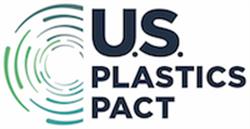 Henkel and Clorox joined other U.S. Plastics Pact members to launch the Roadmap to 2025, a national strategy detailing how the partner companies will reach the group’s sustainability targets by 2025. These goals include developing a list of packaging considered as “problematic or unnecessary” by 2021 and working to remove them by 2025. Also, members will work to ensure that “100% of plastic packaging will be reusable, recyclable, or compostable.”[Image Credit: © US Plastic Pact]
Henkel and Clorox joined other U.S. Plastics Pact members to launch the Roadmap to 2025, a national strategy detailing how the partner companies will reach the group’s sustainability targets by 2025. These goals include developing a list of packaging considered as “problematic or unnecessary” by 2021 and working to remove them by 2025. Also, members will work to ensure that “100% of plastic packaging will be reusable, recyclable, or compostable.”[Image Credit: © US Plastic Pact]
More Than 100 Companies Support Ellen MacArthur Foundation’s EPR Statement
.png&width=250&height=82) The Ellen MacArthur Foundation released a statement saying that packaging waste collection and recycling cannot be “meaningfully scaled” and tens of millions of tons of packaging waste will continue polluting the environment each year without Extended Producer Responsibility (EPR). More than 100 companies operating in the packaging industry and more than 50 other organizations are supporting the EPR statement. Some of the leading brands and retailers recognizing the need for EPR include Henkel, Reckitt, and Unilever. The statement says these companies commit themselves to comply with the statement and to advocate for government’s creation of timely and responsive EPR policies.[Image Credit: © Ellen MacArthur Foundation ]
The Ellen MacArthur Foundation released a statement saying that packaging waste collection and recycling cannot be “meaningfully scaled” and tens of millions of tons of packaging waste will continue polluting the environment each year without Extended Producer Responsibility (EPR). More than 100 companies operating in the packaging industry and more than 50 other organizations are supporting the EPR statement. Some of the leading brands and retailers recognizing the need for EPR include Henkel, Reckitt, and Unilever. The statement says these companies commit themselves to comply with the statement and to advocate for government’s creation of timely and responsive EPR policies.[Image Credit: © Ellen MacArthur Foundation ]
U.S. Chamber Of Commerce Launches Plastics Sustainability Initiative
 The U.S. Chamber of Commerce Foundation has launched an initiative aimed at reducing the environmental impact of plastics. The initiative is funded by the Brian Sheth and Andrea Sheth’s Sangreal Foundation. The campaign will also help businesses improve the sustainability of their plastics value chain. Also, the Chamber of Commerce Foundation hired a sustainability fellow who will research innovations across the plastics value chain.[Image Credit: © The U.S. Chamber of Commerce Foundation]
The U.S. Chamber of Commerce Foundation has launched an initiative aimed at reducing the environmental impact of plastics. The initiative is funded by the Brian Sheth and Andrea Sheth’s Sangreal Foundation. The campaign will also help businesses improve the sustainability of their plastics value chain. Also, the Chamber of Commerce Foundation hired a sustainability fellow who will research innovations across the plastics value chain.[Image Credit: © The U.S. Chamber of Commerce Foundation]
National Research Program Aims To Push Circular Economy In UK
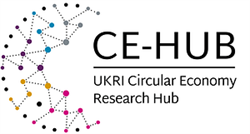 The National Interdisciplinary Circular Economy Research (NICER) program has been launched to speed up the adoption of a circular economy in the UK. UK Research and Innovation is supporting the NICER program with a £30 million investment. Also, the UK Department for Environment, Food and Rural Affairs is supporting the program to push government adoption of research results.
The National Interdisciplinary Circular Economy Research (NICER) program has been launched to speed up the adoption of a circular economy in the UK. UK Research and Innovation is supporting the NICER program with a £30 million investment. Also, the UK Department for Environment, Food and Rural Affairs is supporting the program to push government adoption of research results.[Image Credit: © UKRI]
CONSUMER & PUBLIC OPINION
Online Shoppers Not Happy With Hard-To-Open Packaging, Survey Says
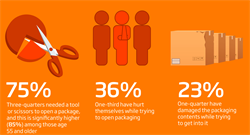 Sustainable packaging company DS Smith said 92% of online shoppers who participated in its survey said they have struggled in opening a product or delivery box. Results of the survey also revealed 87% of respondents blamed “poor product packaging”, including excessive use of sticky tape, while 51% focused their ire on hard-to-open shipments. Significantly, 36% claimed they have hurt themselves while trying to open packaging. Other findings of the survey include 75% needed a tool to open a package, while 23% said they have damaged the packaging contents while trying to open them.[Image Credit: © DS Smith]
Sustainable packaging company DS Smith said 92% of online shoppers who participated in its survey said they have struggled in opening a product or delivery box. Results of the survey also revealed 87% of respondents blamed “poor product packaging”, including excessive use of sticky tape, while 51% focused their ire on hard-to-open shipments. Significantly, 36% claimed they have hurt themselves while trying to open packaging. Other findings of the survey include 75% needed a tool to open a package, while 23% said they have damaged the packaging contents while trying to open them.[Image Credit: © DS Smith]
Survey Shows Consumer Confusion With Companies’ Sustainability Claims
MARKET NEWS
Industry-Led Fund Plans To Invest In Plastic Recycling Infrastructure In US,Canada
 Plastics and materials companies Dow, LyondellBasell, and NOVA Chemicals created the Closed Loop Circular Plastics Fund to invest in scalable recycling technologies in the US and Canada. Close Loop Partners will manage the $25 million fund, which will also invest in equipment upgrades and infrastructure solutions. The fund is inviting companies operating across the plastics value chain to help promote the “recovery and recycling of plastics” in both countries.[Image Credit: © Close Loop Partners]
Plastics and materials companies Dow, LyondellBasell, and NOVA Chemicals created the Closed Loop Circular Plastics Fund to invest in scalable recycling technologies in the US and Canada. Close Loop Partners will manage the $25 million fund, which will also invest in equipment upgrades and infrastructure solutions. The fund is inviting companies operating across the plastics value chain to help promote the “recovery and recycling of plastics” in both countries.[Image Credit: © Close Loop Partners]
Ecosurety Partners With Manufacturers And Retailers To Launch Flexible Plastic Recycling Fund
POLICY, REGULATION & LEGAL
UK Regulator Proposes Guidelines For Environmental Marketing Claims
 The UK Competition and Markets Authority (CMA) has published a set of proposed guidelines for companies’ use of green marketing. Results of the CMA’s probe into companies’ environment and sustainability claims made online revealed 40% of such claims could be “misleading”. The CMA’s draft guidance provides companies with advice on how to best communicate their green claims to consumers and reduce the risk of false environmental claims.[Image Credit: © Open Government Licence v3.0,]
The UK Competition and Markets Authority (CMA) has published a set of proposed guidelines for companies’ use of green marketing. Results of the CMA’s probe into companies’ environment and sustainability claims made online revealed 40% of such claims could be “misleading”. The CMA’s draft guidance provides companies with advice on how to best communicate their green claims to consumers and reduce the risk of false environmental claims.[Image Credit: © Open Government Licence v3.0,]
INNOVATION & TECHNOLOGY
Kimberly-Clark Joins Forces With RWDC To Make Marine-Degradable Products
Kao Joins Tokyo Plastic Recycling Program And Studies Feasibility Of Recycled Plastics In Consumer Goods Packaging
 Kao has joined a plastic recycling program in Tokyo’s Dai-Maru-Yu area since May 2021. Kao will study the physical properties of the plastic wastes collected through the program and will determine if they can be re-used in consumer product packaging. The Tokyo Metropolitan Government’s Recycling Designation System helps evaluate the issues related to putting up a circular system for plastic resources and their related environmental impact.[Image Credit: © Kao Corporation]
Kao has joined a plastic recycling program in Tokyo’s Dai-Maru-Yu area since May 2021. Kao will study the physical properties of the plastic wastes collected through the program and will determine if they can be re-used in consumer product packaging. The Tokyo Metropolitan Government’s Recycling Designation System helps evaluate the issues related to putting up a circular system for plastic resources and their related environmental impact.[Image Credit: © Kao Corporation]
Plastic Innovation Prize Encourages Innovators To Develop Alternatives To Thin-Film Plastic
 Filmmaker and fashion designer Tom Ford and marketing agency 52HZ launched the Tom Ford Plastic Innovation Prize to encourage the development of affordable and scalable alternatives to thin-film plastic packaging. The competition offers a prize total of more than $1 million. The competition will also offer support to help finalists achieve scale and market adoption by 2025.[Image Credit: © Tom Ford]
Filmmaker and fashion designer Tom Ford and marketing agency 52HZ launched the Tom Ford Plastic Innovation Prize to encourage the development of affordable and scalable alternatives to thin-film plastic packaging. The competition offers a prize total of more than $1 million. The competition will also offer support to help finalists achieve scale and market adoption by 2025.[Image Credit: © Tom Ford]
RESEARCH
Study Shows Plastic Packaging For Take-Out Food Choking The Oceans
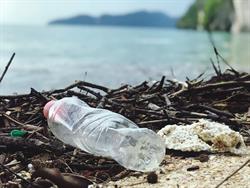 Results of a new study by the University of Cadiz revealed 44% of plastic waste polluting rivers and oceans are related to take-out food and drinks. Also, the study’s scientists discovered that eight out of 10 items listed from global inventories cataloguing over 12 million pieces of litter in and around rivers, oceans, shorelines, and the seafloor were made of plastic. A second study analyzed litter that reached the ocean from Europe’s rivers. Results of the second study revealed plastic accounted for about 80% of the estimated volume of floating litter.[Image Credit: © Catherine Sheila]
Results of a new study by the University of Cadiz revealed 44% of plastic waste polluting rivers and oceans are related to take-out food and drinks. Also, the study’s scientists discovered that eight out of 10 items listed from global inventories cataloguing over 12 million pieces of litter in and around rivers, oceans, shorelines, and the seafloor were made of plastic. A second study analyzed litter that reached the ocean from Europe’s rivers. Results of the second study revealed plastic accounted for about 80% of the estimated volume of floating litter.[Image Credit: © Catherine Sheila]
Copyright 2026 Business360, Inc.

